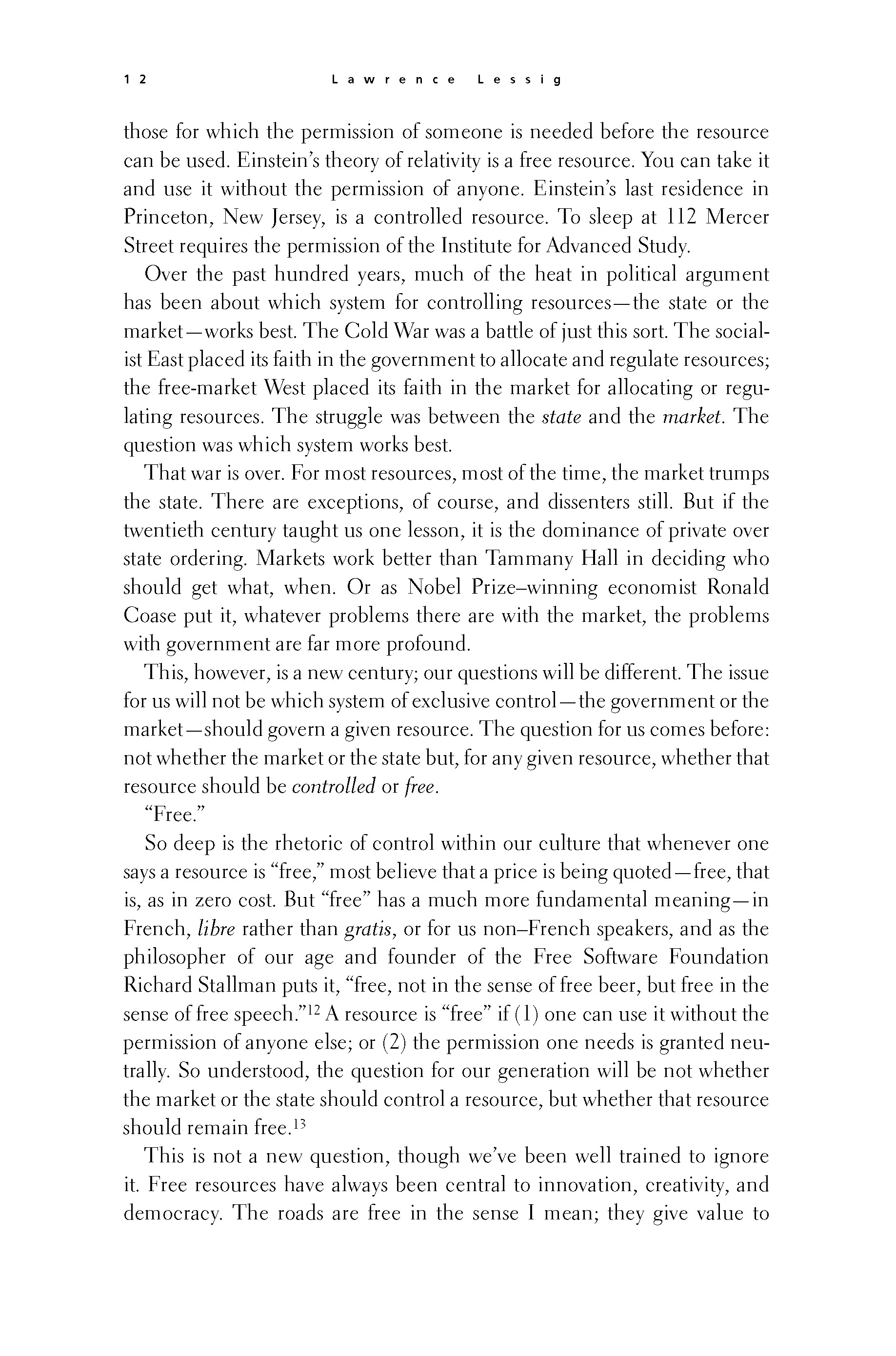 p011 _
-chap- _
toc-1 _
p012w _
toc-2 _
+chap+ _
p013
p011 _
-chap- _
toc-1 _
p012w _
toc-2 _
+chap+ _
p013
those for which the permission of someone is needed before the resource
can be used. Einstein's theory of relativity is a free resource. You can take it
and use it without the permission of anyone. Einstein's last residence in
Princeton, New Jersey, is a controlled resource. To sleep at 112 Mercer
Street requires the permission of the Institute for Advanced Study.
Over the past hundred years, much of the heat in political argument
has been about which system for controlling resources -- the state or the
market -- works best. The Cold War was a battle of just this sort. The social-
ist East placed its faith in the government to allocate and regulate resources;
the free-market West placed its faith in the market for allocating or regu-
lating resources. The struggle was between the _state_ and the _market_. The
question was which system works best.
That war is over. For most resources, most of the time, the market trumps
the state. There are exceptions, of course, and dissenters still. But if the
twentieth century taught us one lesson, it is the dominance of private over
state ordering. Markets work better than Tammany Hall in deciding who
should get what, when. Or as Nobel Prize-winning economist Ronald
Coase put it, whatever problems there are with the market, the problems
with government are far more profound.
This, however, is a new century; our questions will be different. The issue
for us will not be which system of exclusive control -- the government or the
market -- should govern a given resource. The question for us comes before:
not whether the market or the state but, for any given resource, whether that
resource should be _controlled_ or _free_.
"Free."
So deep is the rhetoric of control within our culture that whenever one
says a resource is "free," most believe that a price is being quoted -- free, that
is, as in zero cost. But "free" has a much more fundamental meaning -- in
French, _libre_ rather than _gratis_, or for us non-French speakers, and as the
philosopher of our age and founder of the Free Software Foundation
Richard Stallman puts it, "free, not in the sense of free beer, but free in the
sense of free speech."[1-12] A resource is "free" if (1) one can use it without the
permission of anyone else; or (2) the permission one needs is granted neu-
trally. So understood, the question for our generation will be not whether
the market or the state should control a resource, but whether that resource
should remain free.[1-13]
This is not a new question, though we've been well trained to ignore
it. Free resources have always been central to innovation, creativity, and
democracy. The roads are free in the sense I mean; they give value to
[[12]]
p011 _
-chap- _
toc-1 _
p012w _
toc-2 _
+chap+ _
p013